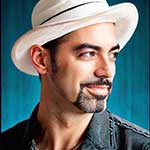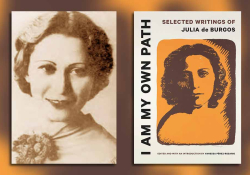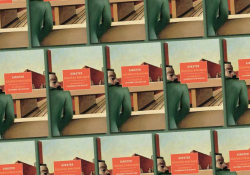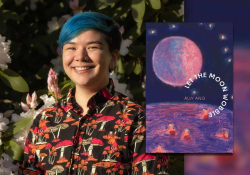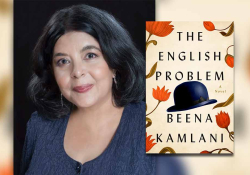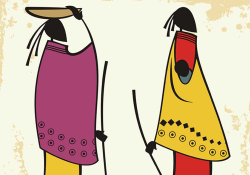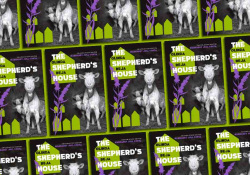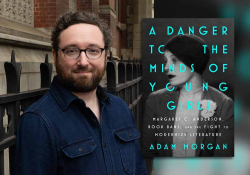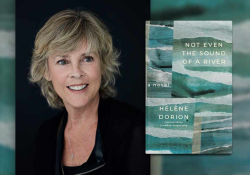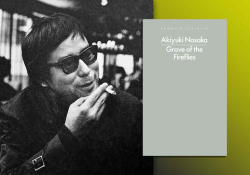Radical Love: Bliss, Beauty, and Islam’s Mystical Tradition

Theologians may quarrel, but the mystics of the world speak the same language. – Meister Eckhart
We live in unexemplary times, maddened by fear, murderous ignorance, and mistrust of one another. Even though Muslims make up around a fourth of the global population, or around two billion souls, for many, the faith has become besmirched with backwardness and violence. Islamophobia is a widespread, too painful reality, and hate speech is not without its cost. It is a proven fact that hate crimes against Muslims are on the rise, from bullying in the classroom to racial slurs, as well as more grave offenses, such as mosque burnings, even murders. Which is to say, hate and violence (on either side) begin in minds and hearts before finding their way to our lips and, soon enough, translating into heinous actions against (oftentimes, dehumanized) Others.
As an immigrant, Muslim, and writer living in Trump’s alarming America, as well as a citizen of our increasingly polarized world, I will not deny that speaking out on behalf of Islam has become something of a burden and sweet responsibility. I find that I must begin most conversations on this subject, including this one, by stating the obvious: “Terrorism has no religion and most victims of terrorism are moderate Muslims.”
It’s tiresome to be continually on the defensive, which does not always bring out the best in us or the most charitable, gentle responses. A German Muslim scholar, when asked about the connection between terrorism and Islam, went on this rant:
Who started the first world war? Not Muslims. Who killed 6 million Jews in the Holocaust? Not Muslims. Who killed about 20 million Aborigines in Australia? Not Muslims. Who sent the nuclear bombs of Hiroshima and Nagasaki? Not Muslims. Who killed more than 100 million Indians in North America? Not Muslims. Who killed more than 50 million Indians in South America? Not Muslims. Who took about 180 million African Muslims as slaves obliged them to leave Islam, 88% of whom died and were thrown overboard into the Atlantic Ocean? Not Muslims . . .
Which is not to say that I believe, as a Muslim community, we are entirely off the hook either. I agree with many theologians and scholars of Islam who call for profound self-examination and a better understanding of the faith, such as Hamza Yusuf’s formula for “a renovation of the abode of Islam . . . to make new again, repair, reinvigorate, refresh, revive our personal faith.” It seems self-defeating and willful to deny that something is rotten within the Muslim community, and that we need serious housekeeping.
I find that I must begin most conversations on this subject, including this one, by stating the obvious: “Terrorism has no religion and most victims of terrorism are moderate Muslims.”
As I said, we must begin, of course, by declaring to ourselves and the world in no uncertain terms, Not in Our Name, This Violence. There is a damning quote, by Canadian author Robertson Davies, that sums up how I feel about so-called “religious” fanatics in a handful of words: Fanaticism is overcompensation for doubt. To distance ourselves from the blasphemous-murders-who-would-sabotage-faith, we need to embody the peace, love, forgiveness, and sacrifice we find in the spirituality that sustains us, and extend it to those who do not know any better.
For those who wish to throw out the luminous baby, Faith, with the sordid water of current events, it is wise to recall the timeless words of a religiously inspired proponent of nonviolence, the great Martin Luther King Jr.:
Darkness cannot drive out darkness; only light can do that.
Hate cannot drive out hate; only love can do that.
 Meantime, for those who wish to deepen their understanding of the Muslim faith and its ecstatic dimension, I recommend Omid Safi’s Radical Love: Teachings from the Islamic Mystic Tradition (Yale University Press, 2018) as a fine point of entry. A leading scholar of Islam, Safi’s Radical Love arrives on the troubled scene with a peace offering, to clear the good name of a much-maligned, widely misunderstood religion. Showing Love to be at the very essence of Islam, the Divine, and, by extension, everything in existence, Safi’s stirring collection of excerpts then goes on to expertly illustrate how grossly terrorists (in the news and political office) have misperceived the faith.
Meantime, for those who wish to deepen their understanding of the Muslim faith and its ecstatic dimension, I recommend Omid Safi’s Radical Love: Teachings from the Islamic Mystic Tradition (Yale University Press, 2018) as a fine point of entry. A leading scholar of Islam, Safi’s Radical Love arrives on the troubled scene with a peace offering, to clear the good name of a much-maligned, widely misunderstood religion. Showing Love to be at the very essence of Islam, the Divine, and, by extension, everything in existence, Safi’s stirring collection of excerpts then goes on to expertly illustrate how grossly terrorists (in the news and political office) have misperceived the faith.
Which is to say, in the scorching heat of public debate on whether all Muslims are dangerous and should be banned from the civilized world, this book serves as an oasis. Safi presents us with a cool spot to sit and reflect on a religiously inspired state of bliss that, of necessity, precludes violence. After all, in honoring Beauty—as the Quran does, unmistakably, by declaring that God is beautiful and loves beauty—we learn to better appreciate the sanctity of life, all life, and recognize violence, any violence, as the cowardice, failure of imagination, and heresy that it truly is (irrespective of who tries to manipulate which holy text to suit their devious ends).
It is remarkable, for example, during this historical moment of Islamophobic panic, that a thirteenth-century Sufi mystic, Mawlana Jalāl ad-Dīn Muhammad Balkhi (known as Rumi in the West), is not only a best-selling poet but the most popular poet in the US! This is doubly interesting, since Rumi was also a refugee who lived in a turbulent time of religious persecution, not entirely dissimilar from our own. For the millions who appreciate Rumi’s poetry, Safi’s anthology offers an opportunity to better understand the Arabic/Persian traditions that produced him as well as the Muslim holy book, the Quran, that is fertile soil for Rumi’s soul and art.
After all, isn’t it another form of (insidious?) Islamophobia, given Rumi’s current stature in popular culture, that the appreciation of his art should come at the expense of erasure of Islam from his work—as though this beloved, mystical poet is only palatable to the masses if entirely dissociated from the seeming stain of Islam?
Safi’s own translations, here, seek to rectify this subtle violence, by making clear the ongoing conversation with Islam, or love letter addressed to the Divine, that inspires Rumi’s poetry:
The mystics of Islam see themselves as being rooted unambiguously in the word of God . . . their poems and stories are “Qur’an-ful,” filled with both direct and indirect references to scripture.
Showing Love to be at the very essence of Islam, Safi’s stirring collection of excerpts expertly illustrates how grossly terrorists have misperceived the faith.
Selections from the holy Quran are featured in Safi’s Radical Love alongside sacred sayings of the Prophet Muhammad (Hadith Qudsi), emphasizing self-knowledge and mercy as a counterbalance, one hopes, to the ugliness and ignorance that blaspheme in the name of Faith:
The remembrance of God
brings serenity
to hearts. – Qur’an 13:28
To know God
intimately
intimately know yourself
“He who knows his own soul
knows his Lord” – Hadith Qudsi
Also featured in this fine spiritual compendium are mystical utterances and teachings of Divine love by celebrated Sufi poets, such as Attar, Hafez, and other key Muslim mystics, carefully selected and translated by Safi.
Rumi was also a refugee who lived in a turbulent time of religious persecution, not entirely dissimilar from our own.
Page after page, we encounter these “intimates of God” (awliya’, in Arabic) all love-drunk, engaged in the alchemy of transformation and advocating the hard work of overcoming ego and seeking Divine intimacy:
Love of a human being
is an ascension
toward love of God. – Ruzbehan Baqli
My heart takes on every form
a pasture for gazelles,
a cloister for monks,
the idol’s temple . . .
I follow the religion of Love:
Whichever way this caravan turns,
I turn. – Ibn ‘Arabi

Before reviewing this book, I had just completed another rather intriguing book on Islamic mysticism, entitled Ahmad Al Ghazali, Remembrance, and the Metaphysics of Love (2016), by Joseph E. B. Lumbard. The titular mystic, Ahmad, whose life and work are under study in this radical book, was the younger brother of Abu Hamid Muhammad Ghazali, regarded by many as the most important Muslim theologian.
Yet, according to both Lumbard and Safi, the path of radical love in Islamic mysticism found its most articulate spokesman in the lesser-known Ghazali, whose “Sawanih” (a short meditative prose text) Safi refers to as “the love child of Platonic dialogues and Shakespearean sonnets in a Persian Garden.”
All this beginningless and endless love, naturally, circles back to the Divine, who is quoted in Safi’s book as saying:
I was a Hidden treasure
and I loved to be intimately known
So I created the heaven and the earth
that you may know Me
Intimately. – Hadith Qudsi
Safi separates his book of teachings into four parts: “God of Love” (“not just in God, but as God”); “Path of Radical Love” (“meditations on this overflowing”); “Lover and Beloved” (“the dance of love, being and becoming”); and “Beloved Community” (“how to achieve this in the here and now”).
“Here and now” are words that Safi repeats quite often throughout his short, passionate introduction, in case readers mistakenly assume that mystics are only concerned with the next world:
To be a mystic on the path of radical love necessitates tenderness in our intimate dealings, and a fierce commitment to social justice in the community we live in, both local and global.
Again, Safi underscores this important point by circling back to the source, the Quran: “This is God’s command: love and justice.”
Think of this book as an extended hand, holding an olive branch. Or, in Safi’s words,
I invite you to join us on this journey of love. May you find in these poems, in these luminous and fierce teachings of radical love from the heart of the Islamic tradition a mirror—one to reflect to you the beauty of your own soul.
 "Il cantico del-respiro genera promesse" by Agostino Arrivabene (2014, Oil on Wood)
"Il cantico del-respiro genera promesse" by Agostino Arrivabene (2014, Oil on Wood)Sufism is the heart of Islam. It is both the husk and flower of the faith.
We live in confusing times, where Islam and its practitioners need their friends. Sufism, generally speaking, remains relatively untarnished in the public imagination. But “What is Sufism to Islam?” a friend asked me the other day. The short answer is that it is its mystical branch. Books, of course, can be composed on this subject—and they have, including the valuable one currently under review. But, I think it’s safe to say that Sufism is the heart of Islam. It is both the husk and flower of the faith.
Yes, mysticism is not for everyone. One must crawl, first, before one can fly—hence the suspicion ecstatics provoke, in those who do not soar (even within the faith itself). Sufism, in turn, is the (open) secret of Islam, the poetry and beauty, when you’ve boiled everything else away (dogma, etc.). I did not think that I, a recovering existentialist, would find myself one day slipping through the back door of Islam. Yet, led by an abiding longing, I crawled like a refugee to Sufism, for succor and inspiration. To paraphrase Rumi, I let myself be silently drawn by the strange pull of what I love, and it did not lead me astray.
As Safi reminds us in his helpful anthology:
Radical love is channeled through humanity. It has to be lived and embodied, shared and refined not in the heavens but right here and now, in the messiness of earthly life.
It is difficult, I think, in times like ours, not to become radicalized . . . by Pity. May this book help heal and illuminate broken hearts and open hardened ones. I leave you with one parting quotation, which features at the opening of this love manual, by a pioneering teacher of love in the Islamic tradition, the aforementioned Sufi mystic, Ahmad Al Ghazali:
I will write you a book on Radical Love
provided you do not bifurcate it
into Divine Love
and Human Love
Fort Lauderdale, Florida
